
1. More Than 50 Pilot Whales Die After Mass Stranding in Australia
Volunteers worked frantically for a second day to save dozens of pilot whales stranded on a beach in Western Australia, but more than 50 have already died. Nearly 100 long-finned pilot whales stranded themselves on the beach by the city of Albany, on the southern tip of Western Australia, south of Perth, on Tuesday.
Wildlife experts said the whales’ unusual behaviour could indicate stress or illness within the pod. Pilot whales are highly social animals and often maintain close relationships with their pods throughout their lives. “They often have a follow-the-leader type mentality, and that can very much be one of the reasons why we see stranding of not just one but many,”. The incident is reminiscent of one in September, where some 200 pilot whales died after a pod stranded itself on the remote west coast of Tasmania, off Australia’s southeastern coast.
Thank you for your generous gift that will help us continue the production of this weekly, free publication

2. UN Secretary-General “The Era of Global Boiling Has Arrived”
In a press conference focused on climate change, the UN Secretary-General delivered a compelling message, urging immediate and comprehensive global climate action. Emphasizing the growing urgency of the climate crisis, the Secretary-General called on all nations to strengthen their commitments to reduce greenhouse gas emissions, transition to renewable energy, and support vulnerable communities in adapting to climate impacts.
He stressed the need for international cooperation and solidarity to tackle this existential threat facing humanity. The press conference serves as a critical rallying point for world leaders, businesses, and citizens to unite in their efforts to combat climate change, protect the environment, and ensure a sustainable future for generations to come.
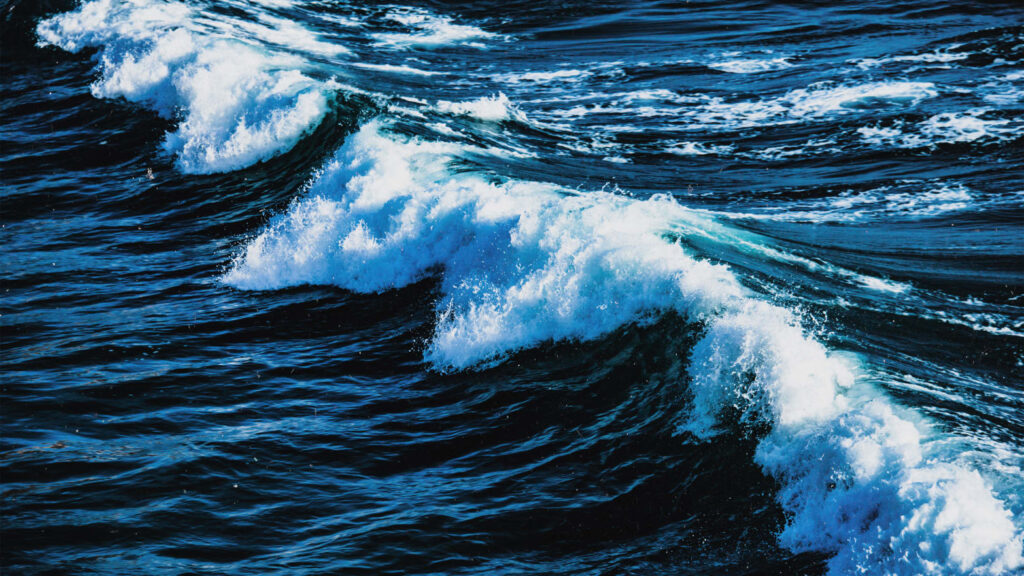
3. Climate Change May Cause the Atlantic Ocean Current to Collapse in 2 Years
Ticking Time Bomb: Atlantic Ocean Current at Risk of Collapse within 2 Years Due to Climate Change
Scientists have issued a grave warning about the potential collapse of the Atlantic Meridional Overturning Circulation (AMOC) within the next two years. This vital ocean current system plays a crucial role in regulating global climate, and its disruption could have catastrophic consequences worldwide. Researchers from the Potsdam Institute for Climate Impact Research discovered that melting ice from Greenland has been weakening the AMOC more than previously anticipated.
Should the current continue to slow down, it could trigger a domino effect of severe weather patterns, including colder temperatures in Northern Europe and intensified hurricanes in the Atlantic. Urgent action is needed to combat climate change and mitigate the potential impacts of AMOC collapse. The clock is ticking, and the world must unite to address this environmental time bomb.
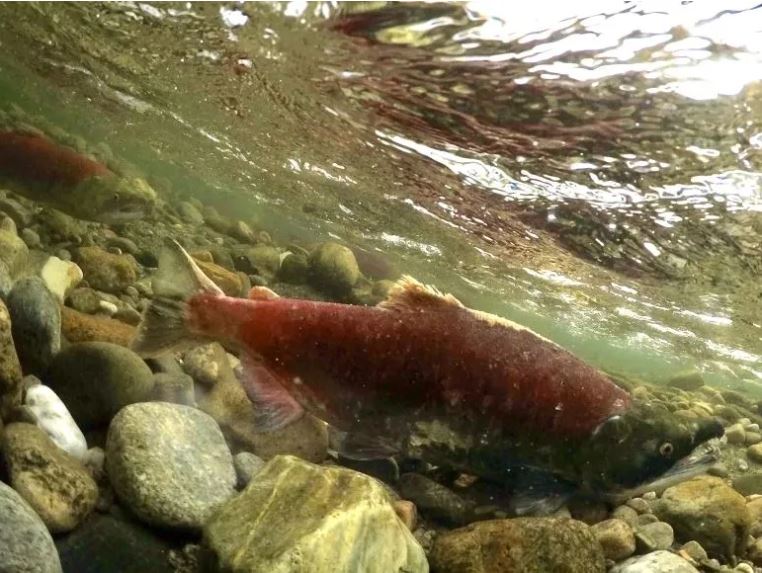
4. Great Sockeye Salmon Run Expected in Yukon’s Alsek Iver, but It’s Not Clear Why
After decades of low numbers, this summer’s sockeye salmon run on Yukon’s Alsek River is expected to be above average for the second year in a row. What’s behind the rebound is still a mystery. Last year, Fisheries and Oceans Canada (DFO) expected 11,000 sockeye salmon to return to the Alsek to spawn, but the actual number was more than double that prediction.
It was the highest escapement seen in the area in more than two decades. DFO expects this year’s runs could see nearly as many sockeye in the river, which flows from the Yukon through northern B.C. to Alaska.”Our early-run sockeye numbers are very low, but coming in for the late-run sockeye, which will run later into August and into September, we have a just slightly above-average forecast of 30,000 fish coming in.”
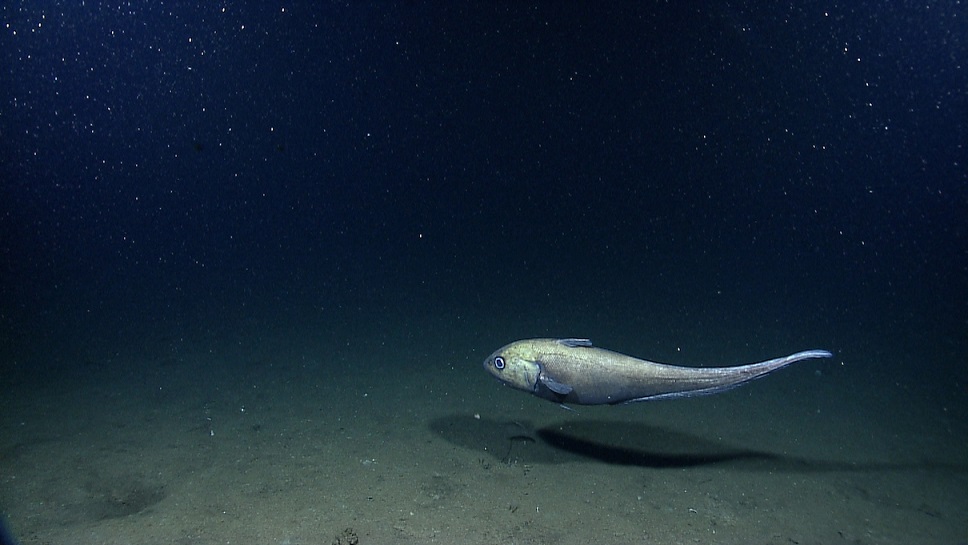
5. Deep-Sea Mining Rules Delayed Two More Years; Mining Start Remains Unclear
On July 22, nations reached an agreement that will make it more difficult for deep-sea mining to start immediately in international waters, while not fully halting the industry’s progress. For the past two weeks, council members of the International Seabed Authority, the UN-affiliated deep-sea mining regulator, have been meeting in Kingston, Jamaica, to negotiate a set of rules that would govern seabed mining in international waters.
This proposed activity would excavate the ocean floor for commercially valuable minerals, which proponents say are needed for renewable technologies, such as electric-vehicle batteries. Yet, critics say deep-sea mining is unnecessary for mineral procurement and would cause widespread and far-reaching damage to marine ecosystems that sustain life on Earth. While deep-sea mining has not begun anywhere in the world, mining companies have invested large sums of money into technology development and launched mining exploration missions into the deep sea.
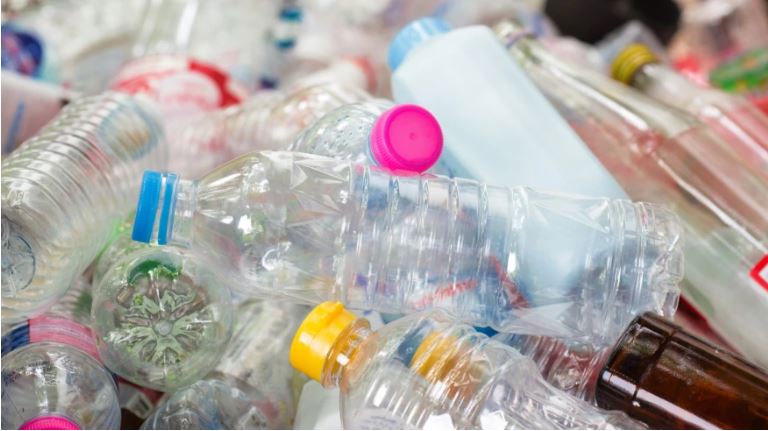
6. Congress Should Establish a National Strategy to Reduce Plastic Pollution
The U.S. Environmental Protection Agency (EPA) recently released its Draft National Strategy to Prevent Plastic Pollution. The draft strategy, for which the public may provide comments until the end of July, contains a host of recommendations to reduce, reuse, collect, and capture plastic pollution to reduce the use of single-use plastics and create a circular lifecycle for plastics currently in use.
One of the strategy’s primary goals is to eliminate plastic pollution in the environment by 2040. While EPA’s draft strategy is a good start, the EPA will need to strengthen its accountability measures if they want to limit plastic pollution and the harm it causes. Given that the Organization for Economic Cooperation and Development estimates that plastics pollution will triple worldwide by 2060, and with only about 9 percent of plastics currently recycled, the need for action is long overdue.
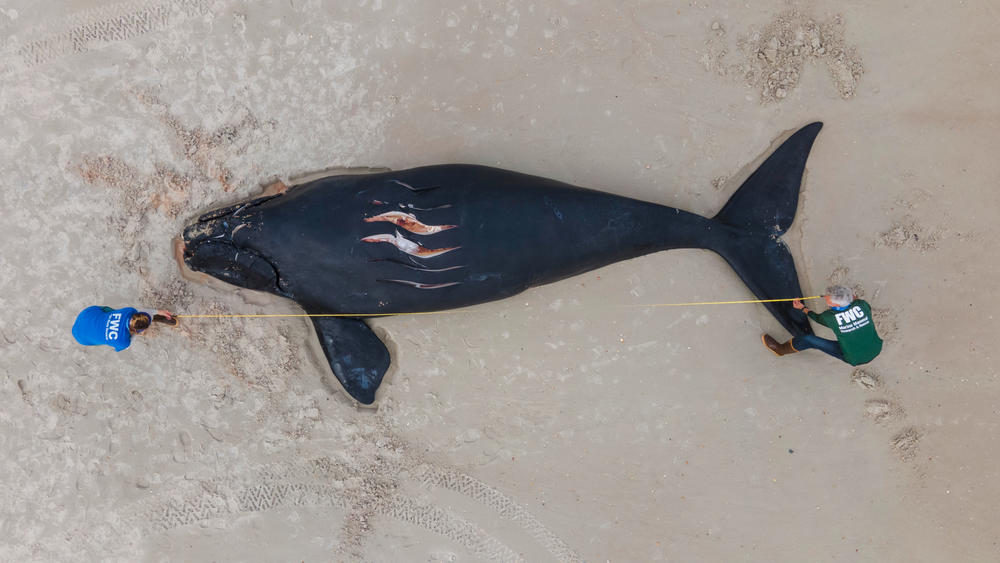
7. Fact Check: Expanded Right Whale Speed Rules
Commercial whalers hunted right whales nearly to extinction in the 1800s when the whales got their name for being the “right” whale to hunt because they swim slowly, float when killed, making them easier to tow back to port. Whaling ceased after the development of cheaper alternatives to whale oil, but whales reproduce slowly and their numbers remained low throughout the last century.
Researchers documented an unexpectedly sharp decline since 2017. Most of the deaths, injuries, and illnesses recorded over the last six years involve either entanglement in fishing gear or a vessel strike. NOAA has proposed expanding its ship speed rule. Vessels 65 feet or longer are already required to slow to 10 knots (about 11.5 mph) when whales are expected to be present in an area. NOAA proposes to impose the speed limit on smaller boats as well, those from 35-65 feet.
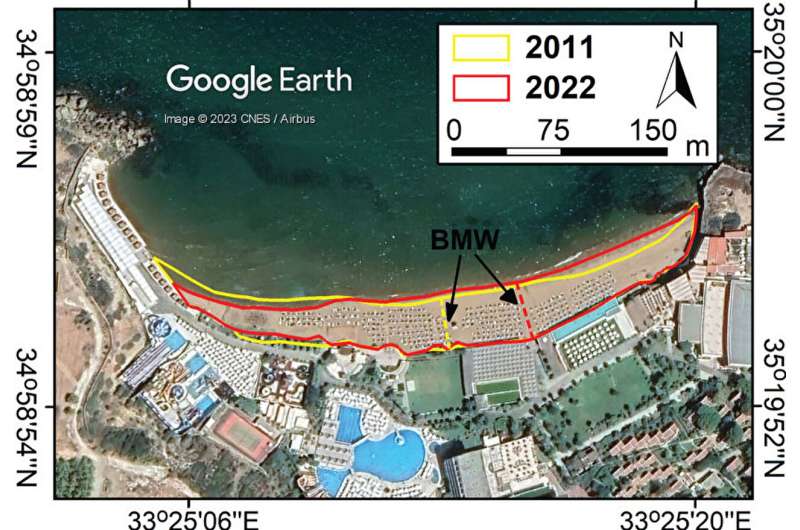
8. Cyprus’ Beaches Could Disappear by 2100 Due to Climate Change
Cyprus’ beaches are at risk due to climate change as increased sea levels and wave action erode the sandy shores. This has prompted a dire warning from researchers at the University of the Aegean, Greece, that up to 72% of the island’s beaches could disappear by 2100. Cyprus is the third largest island in the Mediterranean, with a coastline spanning 740 km.
Extreme sea level rise is projected to increase 60% by 2100 (up to 1.29 m above mean sea level) compared to the baseline level in 2000, with the greatest resulting erosive action occurring on the southern and western coastlines. However, it is the narrow beaches of less the 50 m width that are potentially most susceptible to erosion, with up to 72% modeled to permanently reduce their width by at least half at the end of the century.
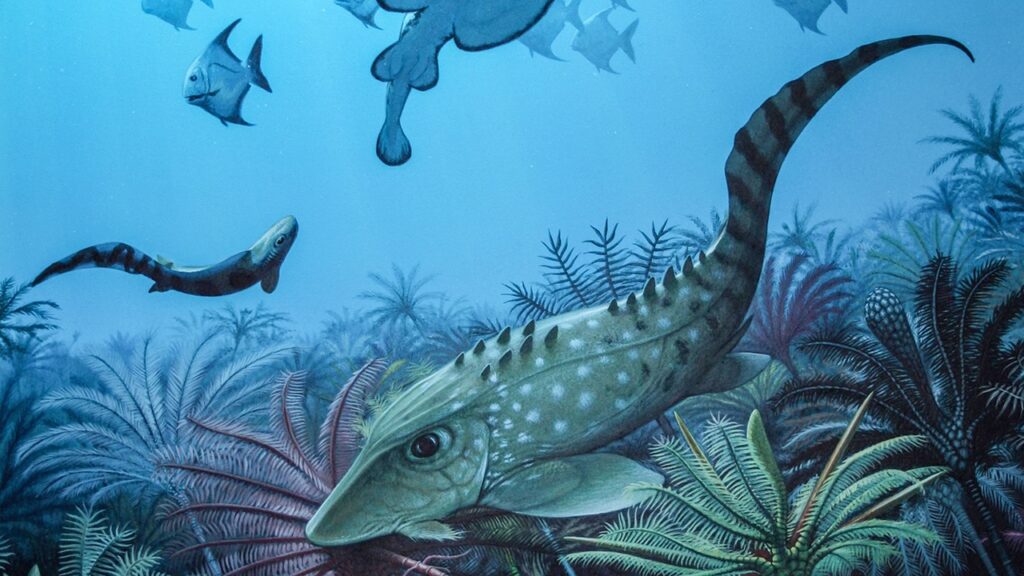
9. Mass Extinction Event 260 Million Years Ago Resulted From Climate Change, Studies Say
Huyue Song of China University, and colleagues from the US, and the UK studied mid-Permian-age rocks at Penglaitan, 300 miles west of Hong Kong. They found that there were two distinct pulses of Capitanian extinction, one about 262 million years ago and another around 260 million years ago, well before the more famous “Great Dying” end-Permian extinction, which occurred 252 million years ago.
Song’s team set out to uncover what happened. They analyzed uranium isotopes, with carbon and oxygen isotopes, in rocks from Penglaitan. When seawater has limited oxygen, microbes in the seabed obtain electrons for their metabolism from other elements, including uranium. Since the microbes prefer uranium-238 over uranium-235, they alter the balance of uranium isotopes between the seabed and seawater. When this imbalance is found preserved in rocks, it tells us that there were oxygen-starved dead zones in the global oceans at that time.
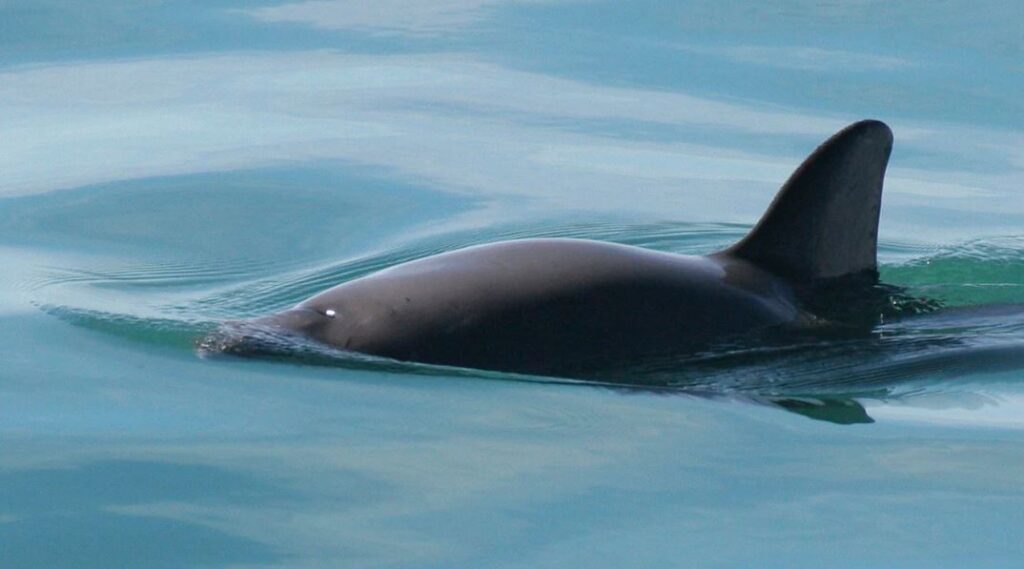
10. Biden Gives Mexico a Year to Better Protect the Endangered Vaquita Porpoise and Totoaba Fish
In a letter to the U.S. Congress sent Monday, Biden said that for now, he’s not directing the Treasury Department to impose trade measures on Mexican products because the Mexican government is implementing protective measures. But he stated that various U.S. agencies “will monitor Mexico’s enforcement actions and progress and provide me with a report not later than 1 year from the date of this notification on whether these actions have reduced the illegal harvest and trafficking of totoaba and enhanced the conservation of vaquita.”
In March, Mexico was sanctioned for several weeks by the Convention on International Trade in Endangered Species of Wild Fauna and Flora (CITES) — a global treaty that regulates wildlife —because, despite presenting a plan to combat illegal totoaba fishing and protect the vaquita porpoise, the action plan was deemed inadequate.
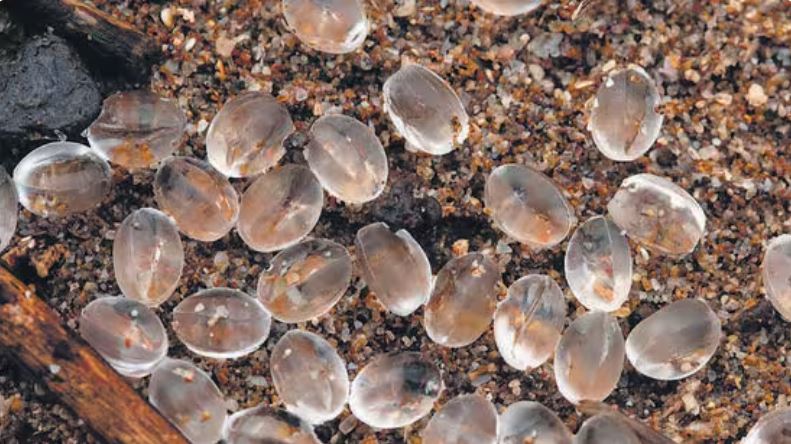
11. Harmful Nurdles on Mumbai Beaches Need to Be Investigated
“Nurdles” are pellets of microplastics used in the industrial manufacturing of plastic products. Nurdles are globally notorious for wreaking havoc in marine ecosystems. If these are present in Mumbai’s waters in larger quantities, they will be consumed by all manner of marine life. Over time, the pellets will weather away into smaller microplastic fragments and enter the food chain. An alarming ecological crisis is currently unfurling on Mumbai’s shores.
On July 23rd a lifeguard at Aksa Beach informed us at the Marine Life of Mumbai collective that something akin to small jellyfish had washed up along the high-tide line. It was nurdles. An official complaint was filed with the BMC’s disaster management cell, to investigate the origin of these pollutants. It has been four days since the first report from Aksa Beach, and this matter has not been received with the urgency it warrants.
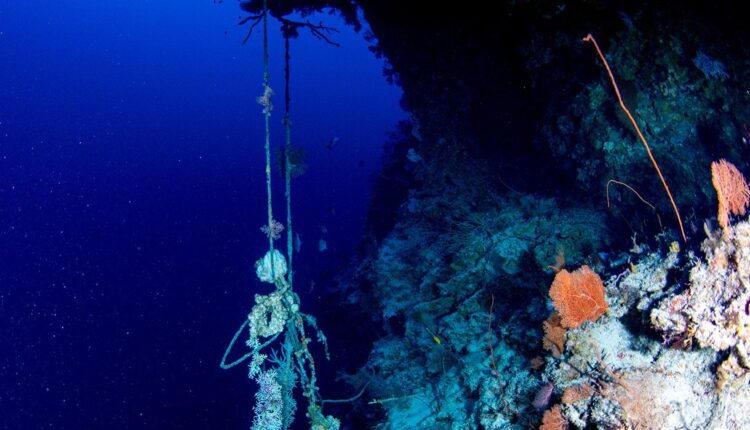
12. Majorly All Coral Reefs Found With Plastic
Almost all coral reefs – including some of the most remote on Earth – contain large pieces of plastic waste, new research shows. The study, published in Nature, surveyed 84 shallow and deep reefs at 25 locations across the Pacific, Atlantic, and Indian oceans, looking for human-made debris over 5cm in size. Debris was found at 77 of the 84 reefs, including at near-pristine locations such as uninhabited atolls in the central Pacific.
Most debris was plastic (88%) and almost three-quarters of items identified (73%) were fishing gear. Surprisingly, deeper reefs were more polluted than shallow ones. The study – by a team including the California Academy of Sciences, Nekton, and the universities of São Paulo, Oxford, and Exeter – is the most comprehensive survey of plastic pollution on coral reefs ever conducted.

13. Los Angeles Airports Ban Sale of Single-Use Plastic Water Bottles
The new rule came into effect at the end of June following a two-year grace period for businesses to find and implement suitable alternatives at both Los Angeles International Airport and Van Nuys Airport. Today, all airport businesses, from shops and restaurants to vending machines and events must offer aluminum or glass bottles, rather than single-use plastic. The airport authority has also worked with the Department of Water and Power to install refill stations throughout the terminals for travelers.
“We encourage our guests to help us reach our goal of eliminating plastic waste at the airport by bringing a reusable water bottle and filling it up at one of our many hydration stations,” said Justin Erbacci, Chief Executive Officer, LAWA. “Eliminating single-use plastic water bottles is essential to improving our environment and enhancing sustainability across our airports.”
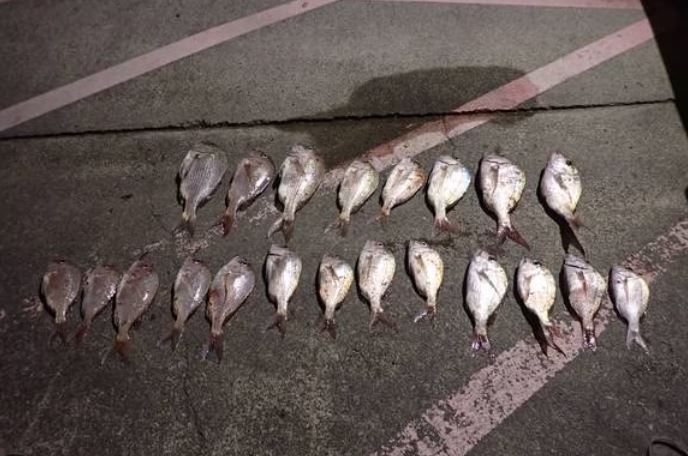
14. Marine Reserve Bandit: Serial Poacher Sentenced for Taking Fish From Protected Auckland Site
A fisherman described by the Department of Conservation (DoC) as one of the worst marine reserve poachers the agency has ever seen has been sentenced for his repeated targeting of a protected Auckland waterway. The 29-year-old was ordered to pay $4000 in fines and had his fishing equipment seized as a result of his hearing. He pleaded guilty earlier to three counts of unlawfully taking marine life and two other fishing-related charges.
The offender’s repeated poaching in a marine reserve is one of the worst we’ve seen at DoC,” Dylan Swain, the agency’s investigations team lead, said in a statement after the hearing. Marine reserves are a safe zone for wildlife and give New Zealanders the chance to experience the sea in a natural state,” Swain said.“We’re sending a clear message today: if you take from a marine reserve, we will take action.”
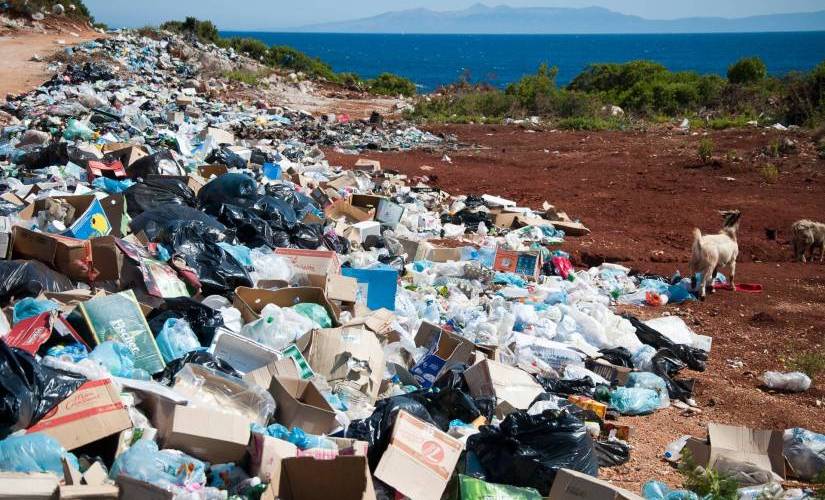
15. Banana Peel Plastic Could Save the Planet
Waste plastic has become a significant problem worldwide, harming ecosystems through littering and other forms of pollution. Researchers at the University of Washington (UW) have developed a bioplastic that breaks down as rapidly as a banana peel. This novel material, derived from algae, degrades naturally and provides several other advantages that make it an appealing replacement for petroleum-based plastics.
In this article, we’ll delve into the history of this bioplastic’s creation, its potential uses, and the obstacles that still need to be overcome. The bioplastic developed by UW scientists is noteworthy because of several important qualities. It’s a greener option than regular plastic because it can be recycled easily. The material is fireproof, meaning it will char and extinguish itself if exposed to flames. In addition, the bioplastic can be machined and may be sufficiently robust for use in long-lasting products like furniture.

16. Reasons Recycling Has Backfired Spectacularly
Reduce. Reuse. Repudiate. These three words would be a much better mantra for consumers than believing recycling is actually helping the planet. That’s because recycling campaigns can help limit what heads to the landfill, but scientists are now saying that it’s masked the glaring problem of over-production and de-emphasized other waste reduction strategies that are far more sustainable.
In a new essay for The Conversation, an interdisciplinary group of researchers out of the University of Virginia that’s been studying the psychology of waste found that many people over-emphasize the recycling aspect of the waste management industry’s “Reduce, Reuse, Recycle” slogan. The result, they say, is a major backfiring as the public has come to mistakenly consider recycling a get-out-of-jail-free card, confusing which goods are actually recyclable in the first place and ignoring the growing waste production catastrophe.

17. Philippines President Urged to Take Concrete Steps to Reduce Plastic Pollution
President Ferdinand “Bongbong” Romualdez Marcos Jr. (commonly referred to as PBBM) has said that he would prioritise the issue of climate change mitigation in his administration. Now Reynaldo San Juan, Executive Director of BAN Toxics, is urging him to take concrete steps to end plastic pollution such as banning single-use plastics.
The group also believes plastics that are essential can be made more reusable through minimum sustainability criteria, polymer and toxic additive restrictions, recycled content targets, common criteria for unnecessary, avoidable, and problematic plastics, and reuse and refill requirements.
Moreover, BAN Toxics emphasises the urgency for President Marcos Jr. to safeguard the Philippines from becoming a dumping ground for first-world nations by promptly ratifying the long-delayed Basel Ban Amendment. This international treaty prohibits the export of hazardous wastes from the European Union, OECD, and Liechtenstein member states to less affluent countries.
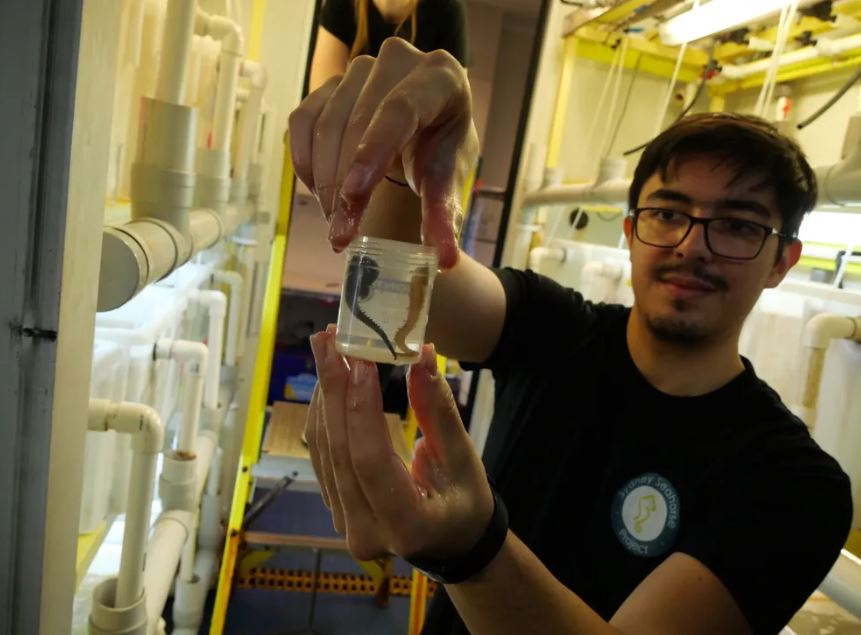
18. Scientists Release Record-Breaking Number of Baby Seahorses Into Sydney Harbor
After months of painstakingly rearing hundreds of baby seahorses, Australian marine scientists released the tiny animals into Sydney Harbor last week in a major victory for conservation efforts to boost the endangered sea creature’s population. It was a record-breaking achievement—with roughly 380 baby White’s seahorses introduced into the wild waters of Chowder Bay, the effort marks the largest such release in the world, according to David Harasti, a senior research scientist at the Port Stephens Fisheries Institute in New South Wales.
The White’s seahorse was classified as an endangered species by the International Union for Conservation of Nature in 2017. The new homes for the tiny seahorses will be eight custom-built “seahorse hotels” made from biodegradable metal. Researchers have been using these cage-like structures for several years to provide a safe place for the teacup-sized fish to eat, live and hide from predators.
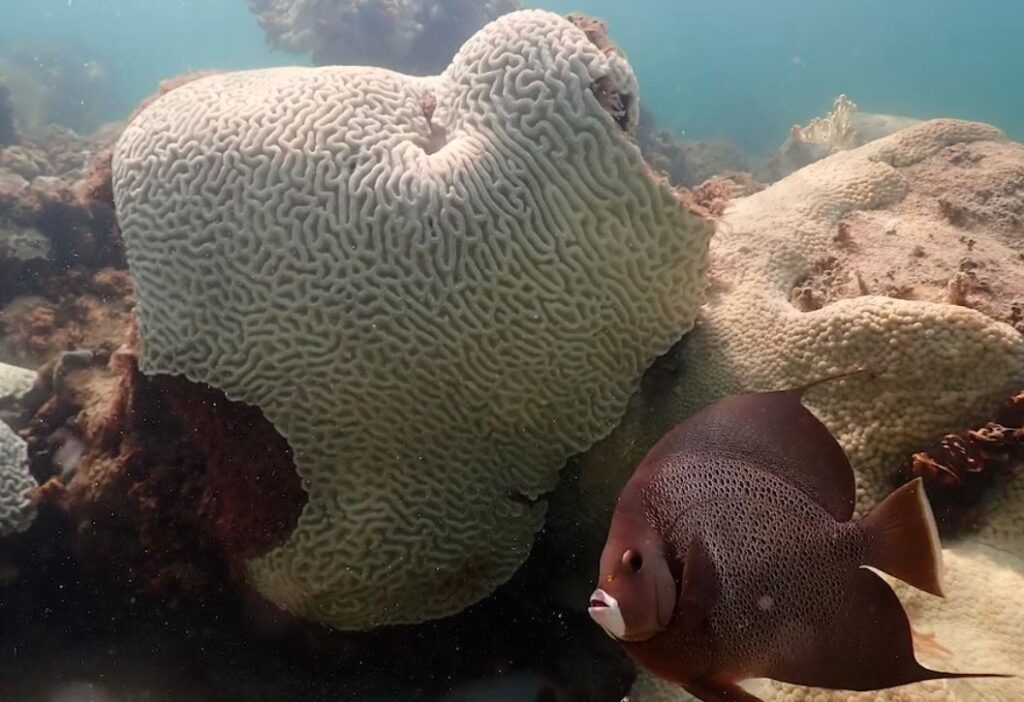
19. Florida Ocean Temperatures Topping 100 Threaten Marine Life
On Monday, a water temperature sensor in Manatee Bay near Everglades National Park in Florida recorded a temperature of 101.1 degrees, according to a park spokesperson. The startling data matched high water temperatures observed elsewhere in the Florida Bay recently, and the scorching conditions could pose a major risk to coral and other marine life, experts warn.
“High temperatures over long periods of time can have a detrimental impact on the marine plants and animals,” Allyson Gantt, chief of communications and public affairs for Everglades and Dry Tortugas National Parks, told NPR via email. “The good news is that temperatures are still decreasing by as much as 10 degrees at night, and salinity levels are lower at this time of year than they have been in many previous years,” she added.
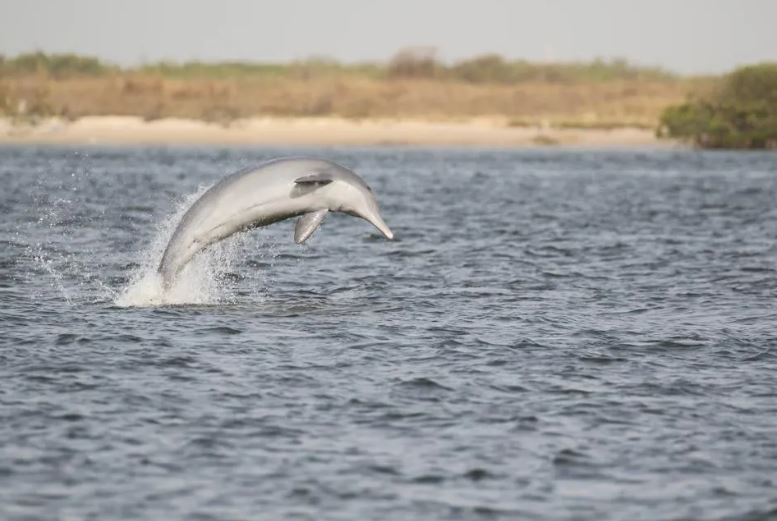
20. Dive into the Enigmatic World of Senegal’s Humpback Dolphins!
Researchers have embarked on a groundbreaking mission to uncover the secrets of Senegal’s Atlantic Humpback Dolphins. These elusive creatures have long fascinated scientists and conservationists due to their mysterious behaviors and habitat preferences. The team aims to use advanced tracking technology and underwater observation to gain valuable insights into the dolphins’ migration patterns, social structures, and the threats they face in their natural environment.
The study’s findings could be crucial in developing effective conservation strategies for this endangered species, helping protect their unique ecosystem. As the world grows more aware of the importance of ocean conservation, this research brings hope for the survival of Senegal’s magnificent marine residents.
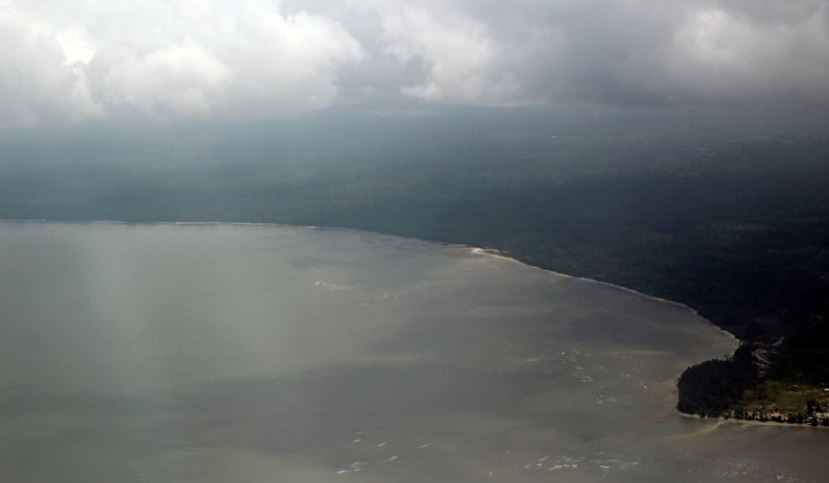
21. Gabon is Pioneering Debt-for-Nature Swap in Africa!
In a groundbreaking move to address environmental challenges, Gabon has initiated Africa’s first-ever debt-for-nature swap. The innovative program involves restructuring a portion of the country’s debt in exchange for commitments to conserve and protect its valuable natural resources. The government of Gabon aims to use the funds from the debt relief to bolster conservation efforts, preserve biodiverse habitats, combat deforestation, and support sustainable development projects.
By taking this bold step, Gabon sets a remarkable precedent for other African nations, showcasing how financial strategies can align with environmental preservation. This initiative not only benefits Gabon’s rich biodiversity but also underscores the nation’s dedication to a greener, more sustainable future.
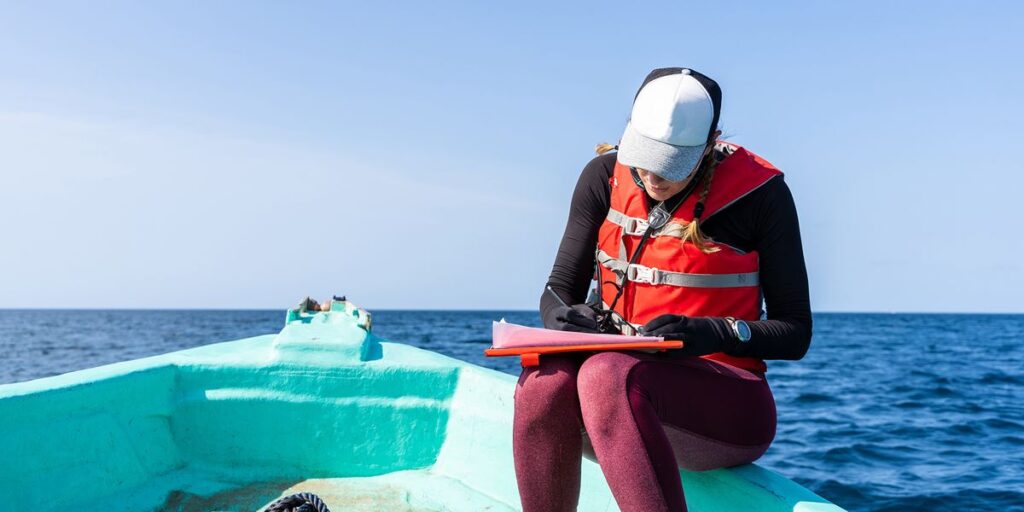
22. Residents Must Have a Voice in Ocean Conservation
Recognizing the critical role of local communities in safeguarding marine ecosystems, a consortium of NGOs and researchers emphasizes the necessity of giving residents a voice in ocean conservation. The collective urges policymakers and stakeholders to include the perspectives and traditional knowledge of coastal communities in designing conservation initiatives. This approach seeks to promote sustainable practices that align with the needs and values of the people living in and around these vulnerable coastal regions.
By fostering collaborative efforts between scientists, governments, and local inhabitants, conservation projects are more likely to succeed in protecting marine biodiversity and securing livelihoods. Empowering communities with decision-making authority acknowledges their stewardship of the oceans and fosters a sense of responsibility toward preserving these invaluable natural resources.

23. India Wants to Collaborate With the EU to Document Marine Biodiversity
India’s Union Earth Sciences Minister, Kiren Rijiju, has called for collaboration with the European Union regarding the use of innovative and non-invasive techniques related to marine biodiversity in areas beyond national jurisdiction. Some of these approaches might include machine learning and artificial intelligence.
During his meeting with Virginijus Sinkevičius, the European Commissioner for Environment, Ocean and Fisheries, Rijiju also discussed common issues such as blue economy, marine litter, plastics pollution, marine biodiversity, marine protected areas and ocean and fisheries dialogue. An official statement said, “Blue economy is an important agenda for both the parties and jointly wants to develop sustainable practices and conservation of ecosystems as priority. India requires the European Union (EU) to provide technical support for Ocean Accounting Framework.”
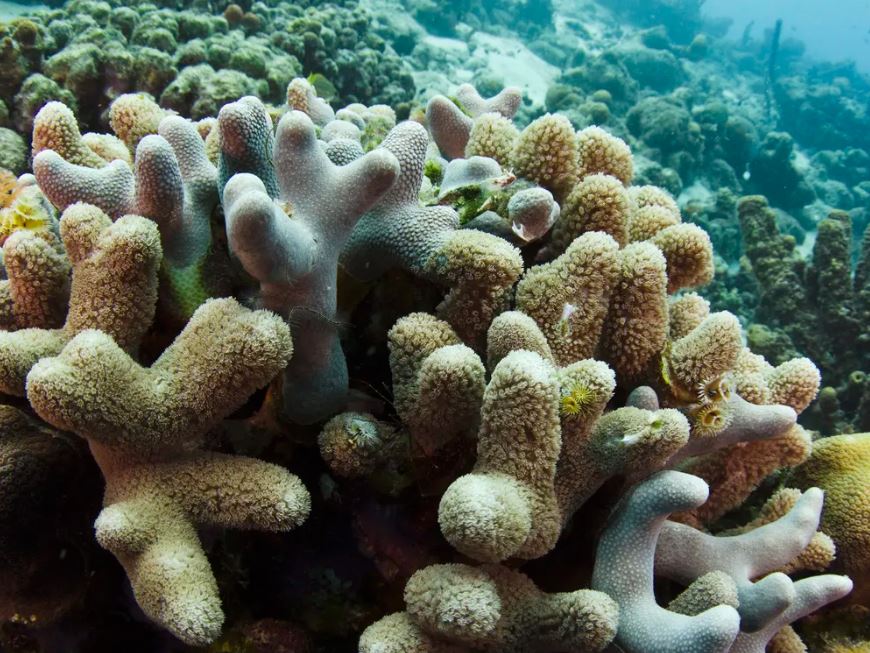
24. Lawsuit Aims to Protect 20 Threatened Coral Species
The Center for Biological Diversity sued the National Marine Fisheries Service today for failing to protect 20 coral species in the Caribbean and Indo-Pacific. The corals all received Endangered Species Act listings in 2014 but not protections offered by the law, including prohibitions on collection and sale. “Truly protecting corals means putting a stop to the aquarium collection and rising water temperatures that are threatening their survival,” said Emily Jeffers, an attorney at the Center.
“Banning collection and trade of corals is a no-brainer for preventing their extinction.” The Endangered Species Act requires the Fisheries Service to issue protective regulations necessary for the conservation of threatened species. Today’s lawsuit, filed in U.S. District Court of Hawai‘i, says the Service has denied those protections for the 20 corals in violation of the Act.




